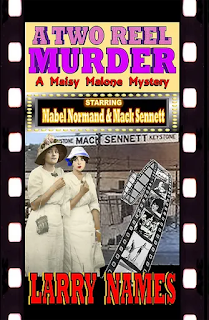Ugo Bardi's novel, "The Etruscan Quest," published in 2023 by "Lu::Ce Edizioni". In several ways, it is a homage to D.H. Lawrence's "Etruscan Places."
Narrative shapes the way we see the world. Entire civilizations were reflected in a single story. For the Greeks it was the Iliad, and for the Romans, the Aeneid. The εὐαγγέλιον, the euangelion, shaped medieval European civilization. And, in modern times, think of Tolstoy's "War and Peace," and how Remarque's "All Quiet on the Western Front" shapes our views of WWI (in Italy, we have an equivalent in "Un Anno sull'Altipiano" by Emilio Lussu.).
But narratives take different shapes, slants, and ways of communicating their message. A good narrative never tries to pass a pre-determined message. It is always a personal euangelion of the author. The meaning emerges from the story as rain falls from a cloud. And that was the case of D.H. Lawrence's "Etruscan Places;" deeply felt, deeply political, deeply prophetic: a message that still resonates with us, nearly a century after it was published. A message that arrives to us so modern, so actual, so relevant, even though in ways that Lawrence himself might not have been able to imagine.
Etruscan Places is a novel with no protagonists except Lawrence himself, not even his wife, the "Queen Bee," who had accompanied him on another Italian escapade in Sea and Sardinia (1921). And, yet, "Etruscan Places" teems of "presences" -- ghostly presences of modern Italians and ancient Etruscans that Lawrence sees as if he were a ghost himself, coming from another world, another country, another language. Ghosts are not easy to see, but a man like Lawrence could. And ghosts could speak to him, and there lies the magic of the whole story.
Novels may have disappeared from our cultural landscape, but narrative remains a fundamental part of it. So, there may still be space for the novel format even in the modern tiktoked world. My novel, "The Etruscan Quest," is, in many ways, inspired by Lawrence's book (ghosts included), even though I never consciously tried to shape it in that way. It is another outcome of the miracle of narrative that shapes itself to say things that the author may not have understood himself or herself.
"The Etruscan Quest" tells the story of a quest to resurrect the ancient Etruscan language. The story takes place in the 1930s, a few years after Lawrence's travel to Tuscany. The narrative of my novel is more directly political than that of Lawrence, even though, again, I didn't write it with the idea of creating a political message. The novel story starts in 1935, and the protagonist, an American, finds himself witnessing some of the darkest events of the parable of the Fascist government in Italy: the attack on Ethiopia, the racial laws against the Jews, the mad idea of rebuilding the Roman Empire, and more. All things that the Italians of that time saw as normal, and that took a rather weird character, a non-professor of the non-existent Miskatonic university, to see, to wonder about, and to try, often unsuccessfully, to understand.
Since I mentioned Miskatonic University, you may also imagine that "The Etruscan Quest" has something to do with H. P. Lovecraft and his Cthulhu mythos. It does. A lot. And the creatures of Lovecraft's universe may well have much more to do with our world than we would accept to admit. But that I'll describe in another comment








